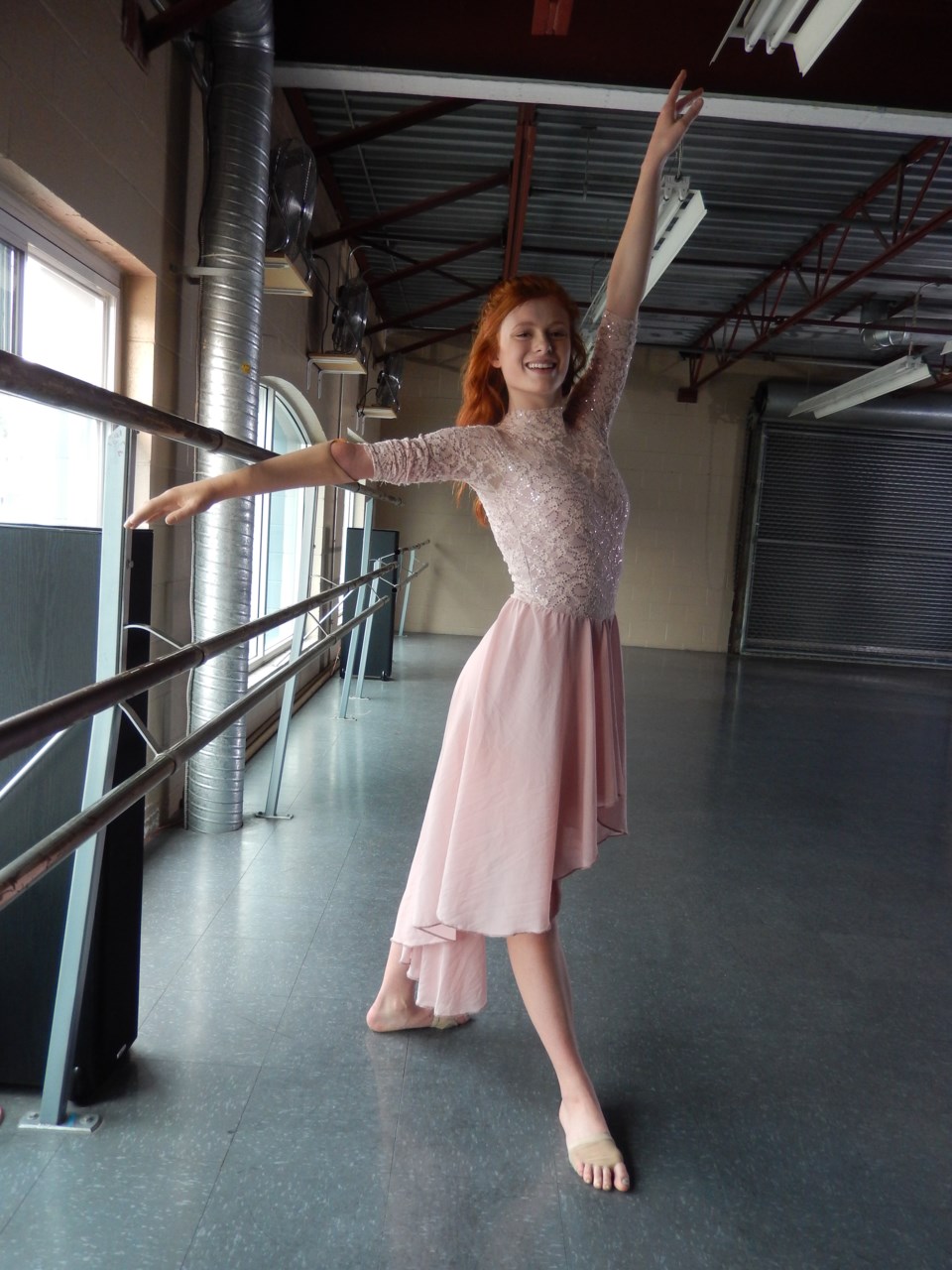If you've ever found a set of keys, chances are you've been able to drop them in a mailbox and the War Amps have returned them to the owner, free of charge.
What you may not think of is someone like Julianna Russo, a 17-year-old student set to graduate from Terry Fox secondary in June. She loves dancing, having taken lessons since before she was three years old, but has been challenged in a way most dancers are not: Russo was born missing her right hand.
It was at the age of five or six that she received her first prosthetic device with financial assistance from the War Amps organization, and since then, the War Amps have fitted Russo with at least one new prosthetic each year as she grew up — one for dance practice and the other for competitions.
"When I was first getting them, they were way too heavy and I couldn't dance with it, it was making me uneven," Russo explained. So the War Amps developed a new prosthetic that works like a glove injected with a light, foamy substance, with fingers shaped and placed in dancer's pose.
"It makes it a lot lighter for me and makes it so I look graceful when I'm dancing," Russo said. "And it's not heavy and tiring for my arm."
Russo and her family have also attended the annual Champs seminars put on by the organization, where child amputees and parents learn about the latest developments in artificial limbs, how to deal with teasing and bullying, and parenting an amputee child.
"We've been going since I was a baby and they've always been there to support whatever I wanted to do," Russo said, adding the stories she has heard have been a source of inspiration, including a young man who was beaten up at a party and later lost his leg.
"I was born into this life, it's all I ever knew, but he grew up with all his limbs and lost one and it's really hard to adapt to everything," she said. "But he handled it really well, and it was really inspiring to me."
Recently, the seminars have been a great source of practical tips, too, as Russo learned how to drive and was encouraged by fellow teenaged amputees who had also been through the process.
"It meant a lot to me knowing I can go there and just be myself and share my story," Russo said.
The War Amps Key Tag Service was launched in 1946 so that returning war amputees could work and provide a valuable service; it continues to employ amputees and people with disabilities, and has returned more than 1.5 million sets of lost keys. The service has increased in recent years due to the high replacement cost of keys and remote devices, said a War Amps spokesperson.
"Thanks to the public's support of the Key Tag Service, we are able to help young amputees like Julianna live full and active lives," said Danita Chisholm, executive director of the Champs program.
This year, the service is celebrating 70 years of returning lost keys with tags mailed out at the end of January. Anyone not on the War Amps' mailing list can order them at waramps.ca or by calling 1-800-250-3030.



